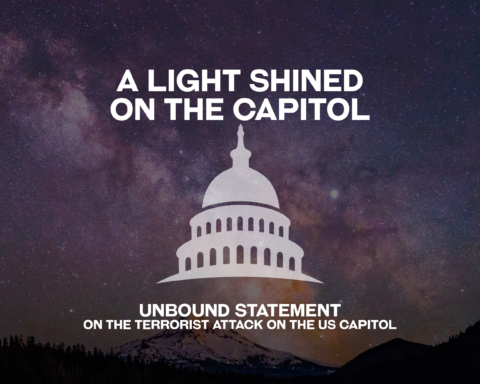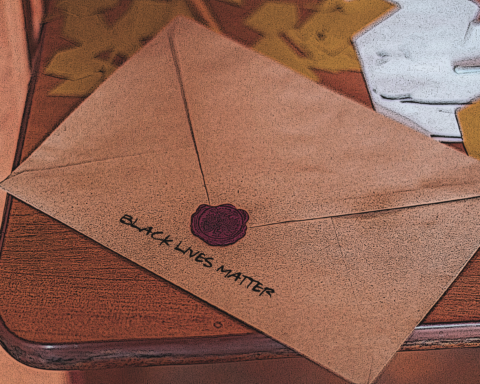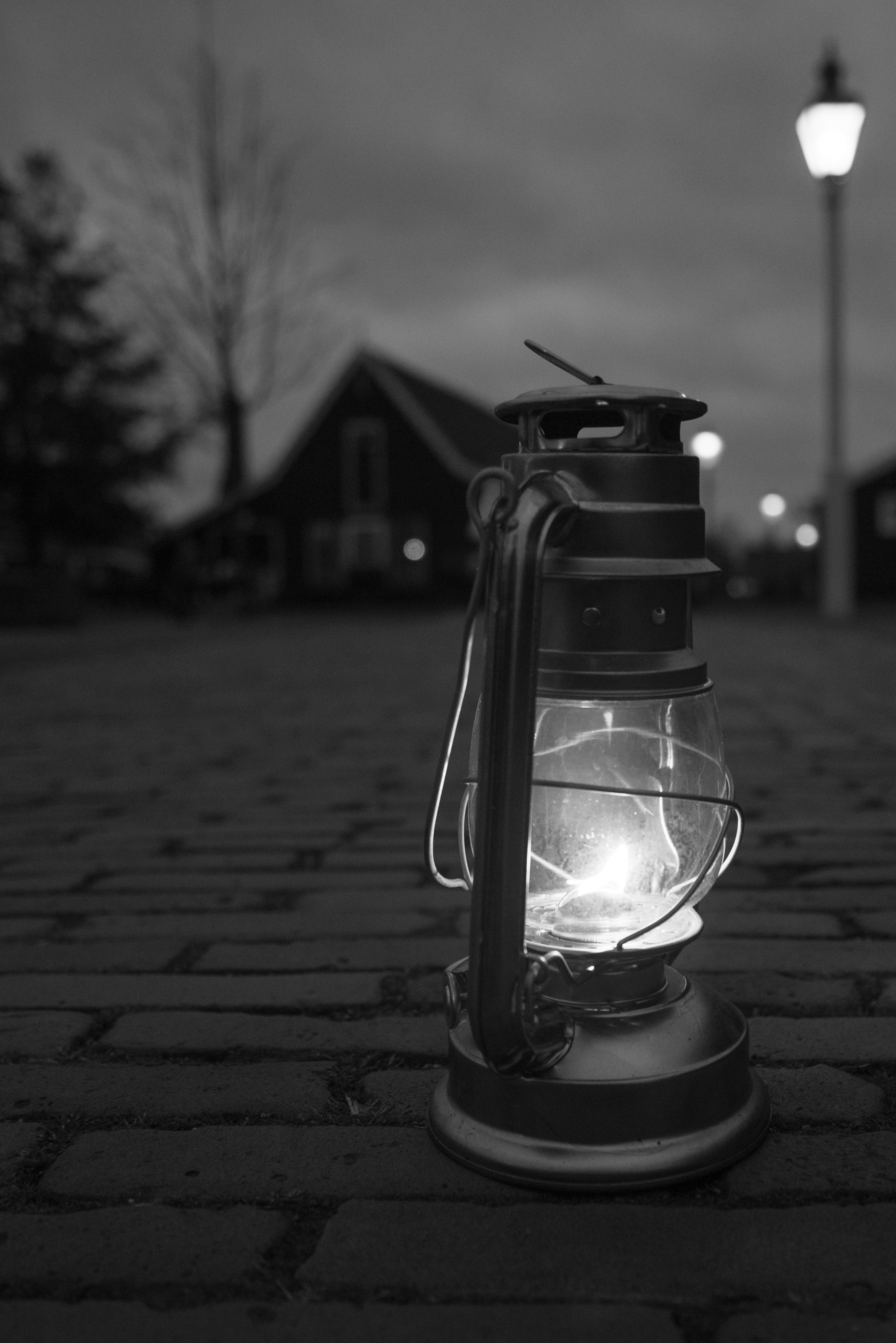Confrontation and Confession in Charlottesville

The events in Charlottesville this weekend remind me how dangerous it can be to be proud of your identity.
In the midst of that ultimately violent confrontation, I was proud to see Presbyterian clergy among the many people of faith standing up to the massed forces of white supremacy in Charlottesville, Virginia. Their courage was a living example of witness to Christ. I am proud to be a Presbyterian. I am well aware that there is sin in that statement. Nevertheless, in moments when our theological tradition manifests itself in acts of social witness that speak to the power of grace in the world—at those times I am proud to call myself a Presbyterian.
___________________________________________
But taking pride in these moments of courage, without acknowledging the full story, would be dishonest.
___________________________________________
I have been proud of the leadership of our church, who have been bold to speak prophetically in troubled times. I was challenged and chastened by the words of our co-moderator, Rev. T. Denise Anderson:
To ask white people to examine their racism is not to ask them to feel guilty (for guilt produces nothing but defensiveness and paralysis). It is to ask white siblings to be brave enough to interrogate a system that is entrenched and doesn’t readily announce itself, a system from which they benefit. White people who are committed to fighting racism face the daunting challenge of rejecting that which keeps them in relative comfort.
I am proud of the historical presence of Presbyterian leaders at the challenging places and moments in our nation’s history of white supremacy. I am grateful for the witness of Judge John Marshall Harlan, a Presbyterian elder, who wrote the withering dissent in the Supreme Court’s 1896 Plessy v. Ferguson decision which enshrined “separate but equal” as the law of the land.
I am moved by the courage of Rev. Dunbar Ogden, a Presbyterian minister in Little Rock, Arkansas, who walked beside the Little Rock nine as they integrated Little Rock Central High. He lived his theology, and is one of the countless, largely anonymous heroes of the Civil Rights movement.
But taking pride in these moments of courage, without acknowledging the full story, would be dishonest. I am mindful of the deep involvement of my faith community in systems of racism and white supremacy, historically and indeed today. The denomination in which I grew up, the Presbyterian Church in the United States (PCUS), owed its existence to a racist ideology which refused to accept that slavery was a sin. In a letter addressed to “all the churches of Jesus Christ throughout the earth” the newly formed Presbyterian Church in the Confederate States of America, precursor to the PCUS wrote:
…we are profoundly persuaded that the African race in the midst of us can never be elevated in the scale of being. As long as that race, in its comparative degradation, co-exists side by side with the white, bondage is its normal condition.
And while the national body of the PCUS would, like its Northern sibling, come to reject slavery and later segregation as the civil rights movement began to penetrate its archaic theology, this rejection was slow and halting. As much as I celebrate the courage of Rev. Ogden during the Little Rock confrontation, it is nevertheless important to note that his congregation was horrified by his actions, demanding that he find a new position “not within months, but within weeks.”
___________________________________________
When [Rev. Dr.] King called out white liberals for being soft on the issue of white supremacy, he was calling out us.
___________________________________________

Just a White Dude in Idaho”
Aug 7, 2017, Louisville
PC: Henry K. Stone
Though our denomination did support the Civil Rights Movement, it did not always do so wholeheartedly. When Rev. Dr. King penned his “Letter from a Birmingham Jail” excoriating white Protestant leaders for their lukewarm support for justice, we know that he did so in response to a “Call for Unity” written by white clergy in Birmingham in which tepid support for civil rights was partnered with a disdain for involving the church in direct action. Today we remember and celebrate King’s prophetic challenge, but we sometimes forget that among the signatories of the “Call for Unity” was the moderator of the Synod of Alabama of the PCUS. When King called out white liberals for being soft on the issue of white supremacy, he was calling out us.
I am also mindful that while challenges to white supremacy were issued from many of our pulpits on Sunday, August 14, there were many churches where Charlottesville remained an afterthought, if that. The fact that every church that calls itself Presbyterian wasn’t tolling the funeral bells and praying psalms of lament at a moment of national tragedy is sinful. It is an act of gross theological negligence.
___________________________________________
We falsely assume that admitting our complicity in white privilege absolves us from other actions, without a need for further confrontation. But we are called to be the church in all times and places.
___________________________________________
So, a time of confession is entirely appropriate to the news of the day. As a denomination we have lived white supremacy, we have benefitted from it, and we have tacitly condoned it. We have been far too timid in our challenges, and too often have settled for muffled and muddy words of regret. I am challenged, as a Christian and an American, that the events of Charlottesville happened “on my watch” as it were. I stand in need of forgiveness for my own reluctance to take the threat as seriously as it needs to be taken.
However, this theology of lament and of confession can be enervating if taken in isolation. Many of us in the Presbyterian Church have become gifted at theological contrition, and at times we can wrap ourselves in the comfort of our guilt and assume that we have done what we have been called to do. We falsely assume that admitting our complicity in white privilege absolves us from other actions, without a need for further confrontation. But we are called to be the church in all times and places. And while that call includes confession and lament, it also includes acting boldly for the good of God’s commonwealth.
___________________________________________
We must remove ourselves from our natural inclination to be “balanced” and “open to all perspectives” and call these evil conflations of hatred and Christianity what they are.
___________________________________________
We need, then, to take Charlottesville as a wake-up call, as if we haven’t had enough of these already. There are vipers abroad in the land, as in Jesus’ Jerusalem (see Matthew 23), and the church must respond. Not only in our sanctuaries, but in our school board meetings, in our town halls, in our national elections. We must not allow the people entrusted with the leadership of our country to peddle false theology in our names to further pernicious agendas.
When the purveyors of racism, homophobia, classism, nationalism, and the rest of that unholy brood of vipers claim to speak in the name of Jesus Christ, we have to say—shouting aloud, not muttering to ourselves on the sidelines—“No!” We must remove ourselves from our natural inclination to be “balanced” and “open to all perspectives” and call these evil conflations of hatred and Christianity what they are. They are heresies, and their acolytes, while they continue to hold onto these idolatrous ideas, are not of us. White supremacy is a perverted worship of the idol of tribe, an explicit ideological embrace of the white privilege which is more often unconscious (and still pernicious). It violates every aspect of Jesus’ teachings, and we are charged as Christians to speak out against it.
Some will worry about a church that speaks this bluntly. Some will wonder, as King’s antagonists did, whether it is appropriate for the church to be the church in this way. Can’t the church just speak about values without choosing sides, and not talk about concrete policy changes? But as Presbyterians, we have resources to deal with such reluctance. The Belhar Confession, recently added to our Constitution, reminds us:
- that the church must therefore stand by people in any form of suffering and need, which implies, among other things, that the church must witness against and strive against any form of injustice, so that justice may roll down like waters, and righteousness like an ever-flowing stream;
- that the church as the possession of God must stand where the Lord stands, namely against injustice and with the wronged; that in following Christ the church must witness against all the powerful and privileged who selfishly seek their own interests and thus control and harm others.
and declares further,
We believe that, in obedience to Jesus Christ, its only head, the church is called to confess and to do all these things, even though the authorities and human laws might forbid them and punishment and suffering be the consequence.
It is finally not about my denomination or any other tradition. The comforting pride that I have in my Presbyterian identity is pride I need to relinquish unless it serves God’s call to prophetic action. We are called to be resurrection people. If our current denominational habits are stumbling blocks, then we must cast them aside. Charlottesville reminds us that prophetic action comes at significant risk, personal as well as denominational.
To those who fear the consequences to the church that may come with direct action and resistance, who worry about upsetting the placidity of Sunday worship or about that most persistent fear of the 21st century church, losing members, we must ask, “What are the consequences of not being the people of God?”
Can our denomination call itself a resurrection people if it is not willing to die?
In addition to this reflection by Professor Rob Trawick, note the joint PCUSA leadership’s Statement Condemning White Supremacy as well as Stated Clerk J. Herbert Nelson’s letter asking, “Are We Complicit in the Racism of the Alt-Right?”. These responses to the recent violence in Charlottesville, VA continue the long arc of PCUSA mobilization against the White Supremacy that has tainted race relations in this country for so long. For more historical background, see PCUSA’s most recent policy on the subject, Facing Racism: A vision of the Intercultural Community Churchwide Antiracism Policy. For implementation in congregational and presbytery conversation and action with other religious and community groups, Building Community Among Strangers contains an early “intersectional” understanding of how race, class, gender, and religious differences can be approached.
***
AUTHOR BIO: Robert Trawick is a ruling elder in the Presbyterian Church (U.S.A.). An associate professor of philosophy and religious studies at St. Thomas Aquinas College and a former moderator of the Hudson River Presbytery, Rob currently serves the denomination as a member of the Advisory Committee on Social Witness Policy.






Unbound Social